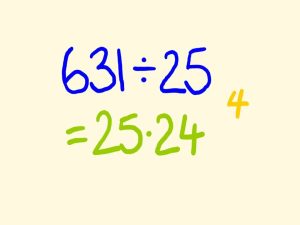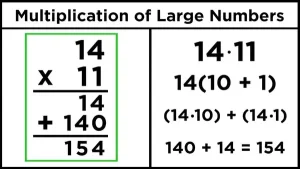Mathematical Worlds: An Introduction
Math is often given a bad name. Math is often seen as a collection of equations and problems. Take a minute to consider the world around. Math is everywhere, from the architecture of our cities to the technologies we use each day. Not only is it about crunching the numbers, but also about understanding patterns and making meaning of complexity.
You’re not the only one who has felt intimidated by math. With a few tips and tricks anyone can learn the secrets of mathematical concepts. You can improve your math skills whether you are a student doing homework or an older adult who wants to brush up.
Join us as we explore the basics, memorization strategies, problem-solving techniques, and much more. Together, let’s discover that math can be an exciting challenge.
Understanding Basic Mathematical Concepts
The foundation for math is a set of fundamental concepts. Understanding these concepts is crucial for solving more complex problems.
Start by identifying the numbers. Start with numbers. Each type has different rules and uses.
Explore operations such as addition, subtraction and multiplication. You can manipulate numbers more effectively if you understand the basic building blocks.
Do not overlook the importance in order of calculations. Order is crucial to achieving accurate results.
Equations bring balance to math. Equations show that two expressions have the same value. Learning how to solve equations opens up real-life problems.
Familiarize your self with the shapes and angles of geometry. As you advance in your math journey, visualizing these elements will help make abstract concepts more concrete.
How to Memorise Formulae and Equations
It can be difficult to memorize formulas and equations. There are ways to make this easier.
Break complex formulas down into smaller components. Before memorizing the whole equation, focus on each component. This helps you understand how everything works together.
Flashcards are another great technique. On one side, write the formula and on the reverse side, its application or an example related to it. Review these cards regularly to strengthen your memory.
For visual learners, drawing diagrams and using colors to differentiate different elements in a formula can be beneficial. Associating specific colors with concepts helps to aid retention.
Practice makes perfect! As you practice, solve problems using the formulae that you have memorized. You will soon find yourself able to use them in familiar situations. Math is best understood and remembered when you engage with it in different ways.
Math Tricks to Solve Common Math Problems
Many math problems seem overwhelming, but with a few simple tricks you can make the process easier. Estimate first. It is easier to estimate answers when you round numbers.
A second effective technique is to break complex equations down into smaller pieces. You can then tackle a piece at a given time, without feeling overwhelmed.
In word problems, look for keywords that indicate the operation needed. For example, “total” is used for addition and “difference”, for subtraction. These cues will guide you and save time.
Practice mental math as much as possible. Simple calculations in everyday scenarios will sharpen your skills.
Use visual aids to help you understand geometry problems, in particular. Visualizing concepts makes them less intimidating and more tangible.
Practice and repetition are important
Math is a skill that requires repetition and practice. Every problem you solve reinforces your understanding. The more you practice, the stronger your muscles become.
Re-visiting concepts can help you solidify your knowledge. As you begin to see patterns, complex problems become easier to solve. This familiarity builds confidence.
They are essential to learning. They help identify areas that need improvement and refine strategies for problem solving. Accept them as stepping-stones, not setbacks.
Over time, incorporating daily practice into your schedule can lead to significant improvements. Even just fifteen minutes can make a difference. Short bursts with focused study can be more effective than long sessions full of distractions.
It isn’t about speed, but rather consistency and perseverance that will help you succeed in mathematics. As you continue to progress, you will find that the challenges become less intimidating.
Resources for Learning and Improvement
Finding the right resources in the constantly changing world of mathematics can make a huge difference. Khan Academy and Coursera are online platforms that offer structured courses for all levels.
Math enthusiasts will also find books to be a treasure trove. Titles like “The Joy of x”, by Steven Strogatz, make complicated concepts relatable.
Do not overlook YouTube channels that offer math tutorials. 3Blue1Brown, for example, provides visual explanations of difficult subjects.
Joining study groups or forums fosters community-based learning. Sites such as Reddit’s R/math connect you to fellow learners who can share tips and work together on problems.
Photomath, a mobile app that simplifies everyday calculations and provides step-by-step instructions to improve understanding, is a great example. These tools will help you improve your math skills!
Final Thoughts: Math is a Challenge!
Math can be intimidating. It is a vast world of patterns, logic and solutions that are waiting to be discovered. Math opens the door to critical thinking, problem solving and other skills that are essential for everyday life.
Patience and perseverance are required to navigate the mathematics journey. Each concept lays the foundation for more complex concepts. Every expert started out as a novice who had to face challenges.
You can learn to approach math without fear by using the tricks and tips discussed. There are many resources available that cater to your learning style.
Take a deep breathe, explore those equations and numbers, and let yourself grow with each calculation. It’s not just about the answer, but also about how we get there.




